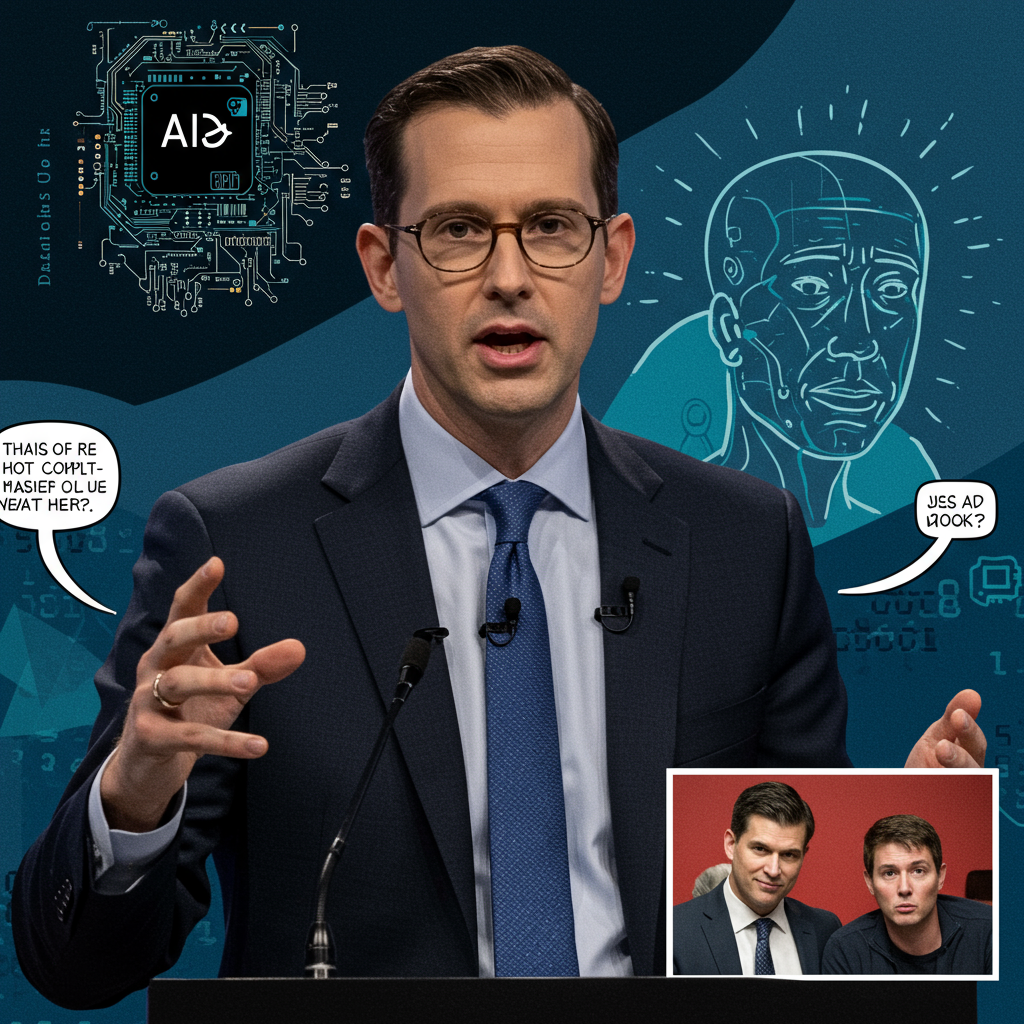Amazon CEO Andy Jassy recently communicated to employees that the company anticipates a reduction in its corporate workforce over the next few years. This projected downsizing is attributed to increased efficiency gains driven by the widespread integration of Artificial Intelligence (AI) across the tech giant’s operations.
The message, delivered via an internal memo, was met with swift and significant criticism from Amazon’s white-collar employees, sparking widespread negative reactions in internal communication channels.
AI’s Expected Impact: Fewer Corporate Roles?
According to Jassy, the current era of AI represents a “once-in-a-lifetime technology shift” that is already reshaping how Amazon functions. The company is reportedly leveraging or developing over 1,000 generative AI applications, applying them across virtually every area, from customer experience features like Alexa and personalized shopping to internal tools for fulfillment, forecasting, advertising, and customer service.
Jassy stated explicitly that as AI tools and “agents” become more advanced and integrated, achieving efficiency will necessitate “fewer people doing some of the jobs that are being done today.” While acknowledging that AI will also create new types of roles, he anticipates that in the next few years, the total corporate workforce will likely decrease due resulting from increased efficiency.
This strategic shift is backed by substantial investment, including plans to spend nearly $100 billion, largely focused on building data centers and advancing AI capabilities. The goal is to create “leaner and smarter operations.”
Inside the Employee Backlash and Concerns
Employee reactions viewed in internal discussions revealed widespread dismay and sharp criticism of Jassy’s vision and the potential implications of this AI-driven efficiency push. Many employees voiced blunt concerns about looming layoffs and questioned the rationale behind prioritizing workforce reduction over leveraging AI productivity gains to grow the business or improve customer satisfaction.
One employee’s comment captured the sentiment for many: “There is nothing more motivating on a Tuesday than reading that your job will be replaced by AI in a few years.” Messages reflected a sense of “deep dread” associated with communications from Jassy, particularly regarding potential cost-cutting measures.
A key debate centered on how Amazon should position AI. While acknowledging AI’s usefulness, many felt the focus should be on AI as “partners” or “teammates” to enhance human work, rather than as tools for “replacement.” They argued that Amazon appeared to be choosing the path of maintaining current output with fewer people, suggesting Jassy’s metric for success seemed centered on a smaller workforce rather than broader business growth or customer benefit.
Beyond job security, employees also raised concerns about the potential dangers of over-relying on AI without adequate safeguards. They warned that AI is not always reliable and could potentially lead to poor decision-making or create new problems, describing such an approach as “dangerous” with “real consequences.”
Cynicism also emerged regarding senior leadership, with employees questioning why AI-driven efficiency seemed targeted at rank-and-file roles while executive layers reportedly expanded under Jassy.
Context and Industry Trends
The AI-driven job shift comes after Amazon has already reduced its workforce by approximately 10,000 employees since 2022 and implemented recent hiring freezes. Corporate roles, making up a significant portion of Amazon’s global workforce (which exceeds 1.5 million), are seen as particularly susceptible to AI integration.
While the criticism was widespread, some employees reportedly agreed with aspects of Jassy’s perspective, suggesting certain roles, particularly in middle management, might indeed be replaceable by AI or viewing Jassy’s memo as simply “saying the quiet part out loud” regarding internal expectations.
Amazon’s situation mirrors a broader trend in the tech industry and beyond. Other companies like Klarna, Duolingo, Shopify, Intuit, and Cisco have also indicated that AI integration is leading to significant operational changes and, in some cases, job reductions or shifts in workforce composition. Experts have also raised questions about the future of entry-level roles that involve repetitive intellectual tasks, emphasizing the increasing need for rapid upskilling.
Jassy’s memo encouraged employees to proactively adapt by learning about AI and staying curious, framing evolution with technology as key to remaining relevant.
Amazon has not provided specific details regarding which roles or the exact number of employees that might be impacted by these AI-driven efficiencies in the future, and an Amazon spokesperson did not respond to requests for comment on the employee reactions. The uncertainty surrounding the future impact of AI on corporate roles continues to fuel employee anxiety.


